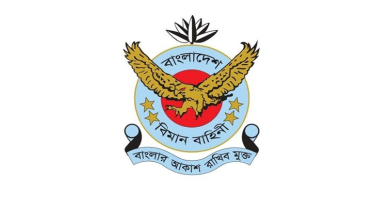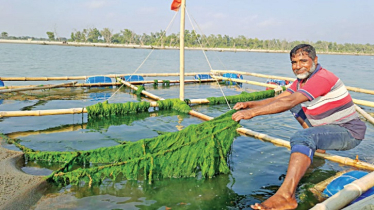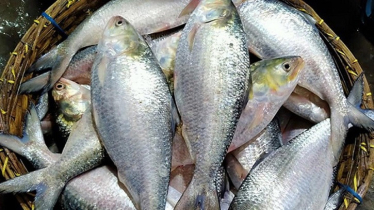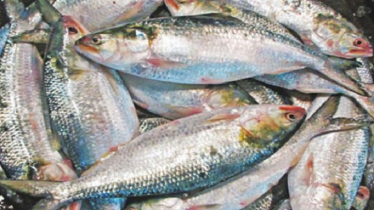
Despite the official breeding season ban, a surge in illegal hilsa fishing is taking place in Charghat, Rajshahi. Local fishers are freely fishing day and night, while occasional raids by the Fisheries Department and local authorities have had limited impact. Many fishers are reportedly crossing into Indian waters to continue their catches, and Indian fishers are also entering Bangladeshi waters to exploit the hilsa stock.
According to the Fisheries Department, a 22-day hilsa fishing ban is in effect in the Padma River from October 4 to 25 to protect the species during its spawning season. During this period, the use of nets, catching, transporting, storing, and selling hilsa is prohibited. Despite three enforcement operations in the past six days, no nets, fish, or fishers have been apprehended.
On Friday morning, from 6 a.m. to 11 a.m., more than 30 boats, including those belonging to both Bangladeshi and Indian fishers, were seen returning to shore in Pirojpur and Rawtha areas along the Padma River. Buyers, including local traders and consumers from afar, were also present.
Selim Reza, who had come to purchase fish, said, “Before the ban, fish prices were very high, making it difficult for ordinary people to buy hilsa. Now, with the government ban, I came early hoping to buy cheaper hilsa. Traders are crowding the area and demanding higher prices. I bought juvenile hilsa for 400 taka per kilogram.”
Local trader Zillur Rahman added, “In addition to hilsa, other species such as rita, ghoula, and shrimp are being caught in the river. We purchase these from fishers and supply them to customers according to online and mobile orders.”
Despite receiving 25 kilograms of rice from the government during the ban period, fisher Sagar Ali admitted to continuing fishing. “Nearly all local fishers are in the river with nets, and many are preparing to go out. If I stop alone, it won’t help increase hilsa reproduction. The authorities are not as strict as before, only patrolling the river once or twice a day without taking action. That’s why everyone is fishing freely, including Indian fishers,” he said.
In response to accusations of lax enforcement, Charghat River Police In-Charge Humayun Kabir stated that fishers escape into Indian waters during raids, making apprehension impossible. He added that fishers risk their lives from Indian border guards for money. Discussions regarding this issue have been held with the Fisheries Department and the Border Guard Bangladesh (BGB).
Tajmul Haq, president of the local fishers’ association, said, “Indian fishers are continuously taking fish without being stopped. This encourages our fishers to enter Indian waters to avoid arrest, and some have even been caught by BSF. Despite the risks, they continue fishing.”
Resident Golam Mostofa noted that stricter operations were conducted in previous years, which deterred fishers from entering the river. “This year, with the law enforcement situation somewhat fragile, fishers are taking advantage. The hilsa has not yet arrived in large numbers, but its presence is gradually increasing,” he said.
Charghat BGB Camp Commander Sahebur Rahman said awareness campaigns are being conducted in border areas, including mosque announcements during prayers, to educate fishers about protecting spawning hilsa.
Fisheries Officer Md. Asaduzzaman stated that sufficient hilsa has not yet arrived in the river, so intensive operations have not been launched. He confirmed that fishers have been warned about entering neighboring country waters, and strong raids will commence soon.





